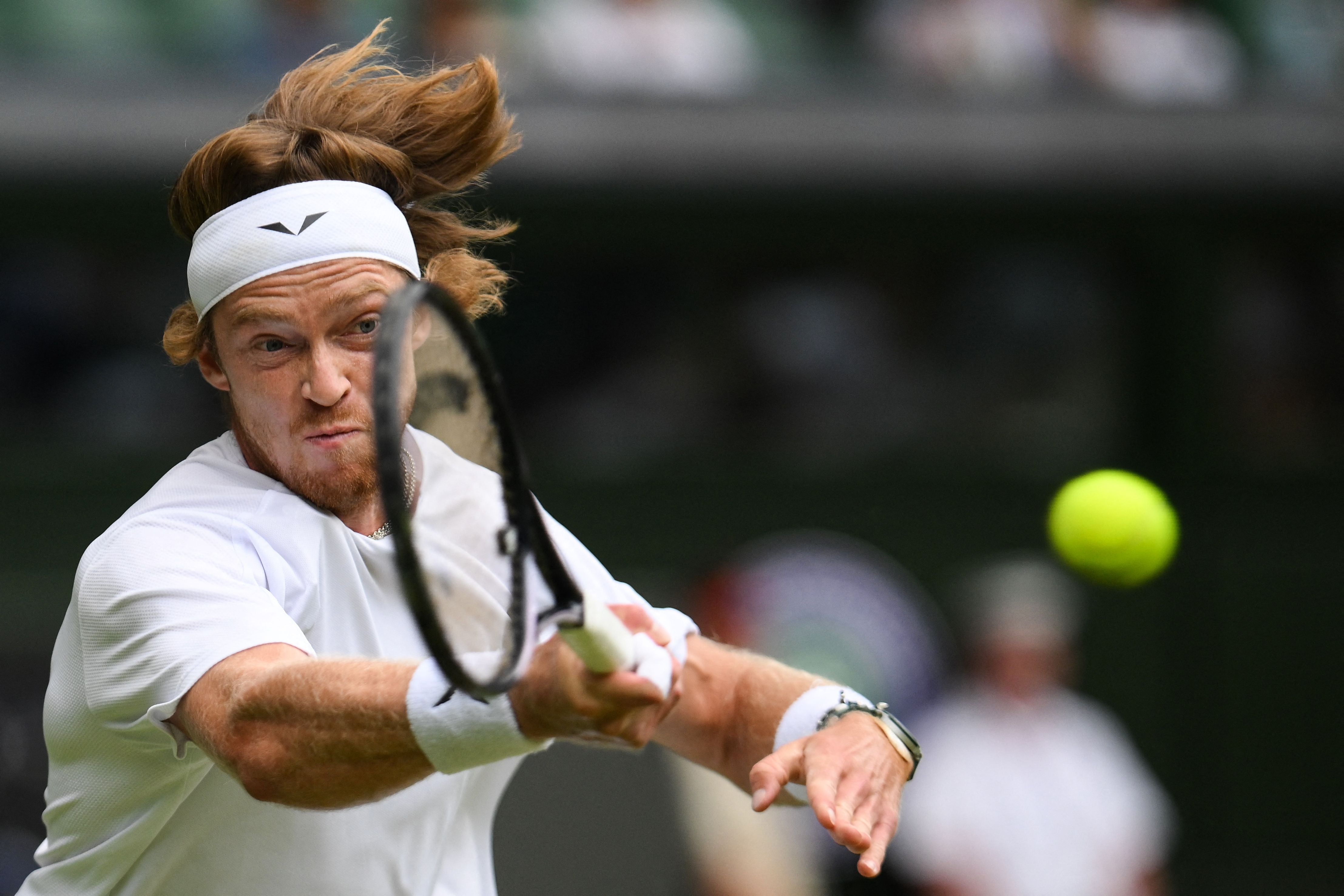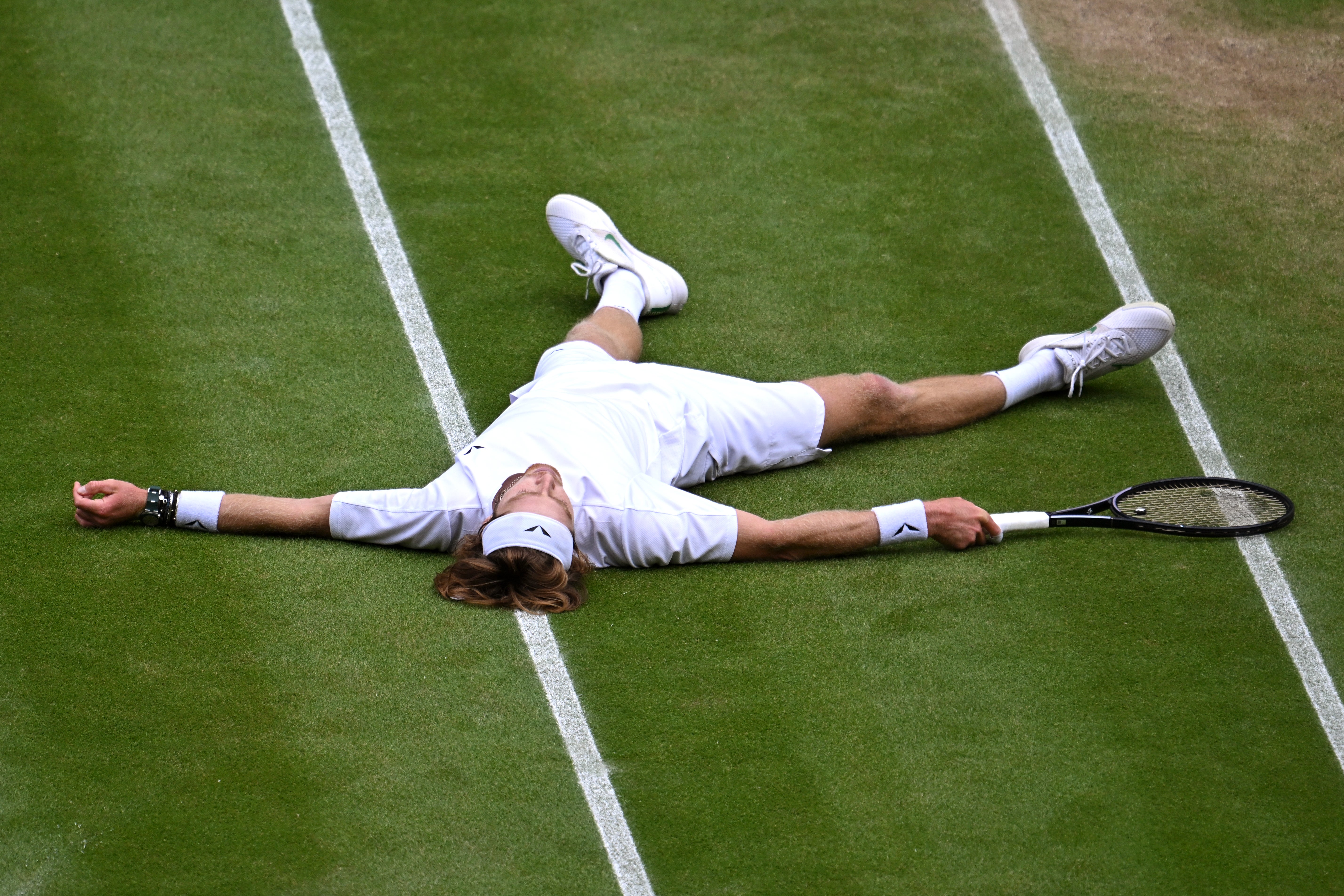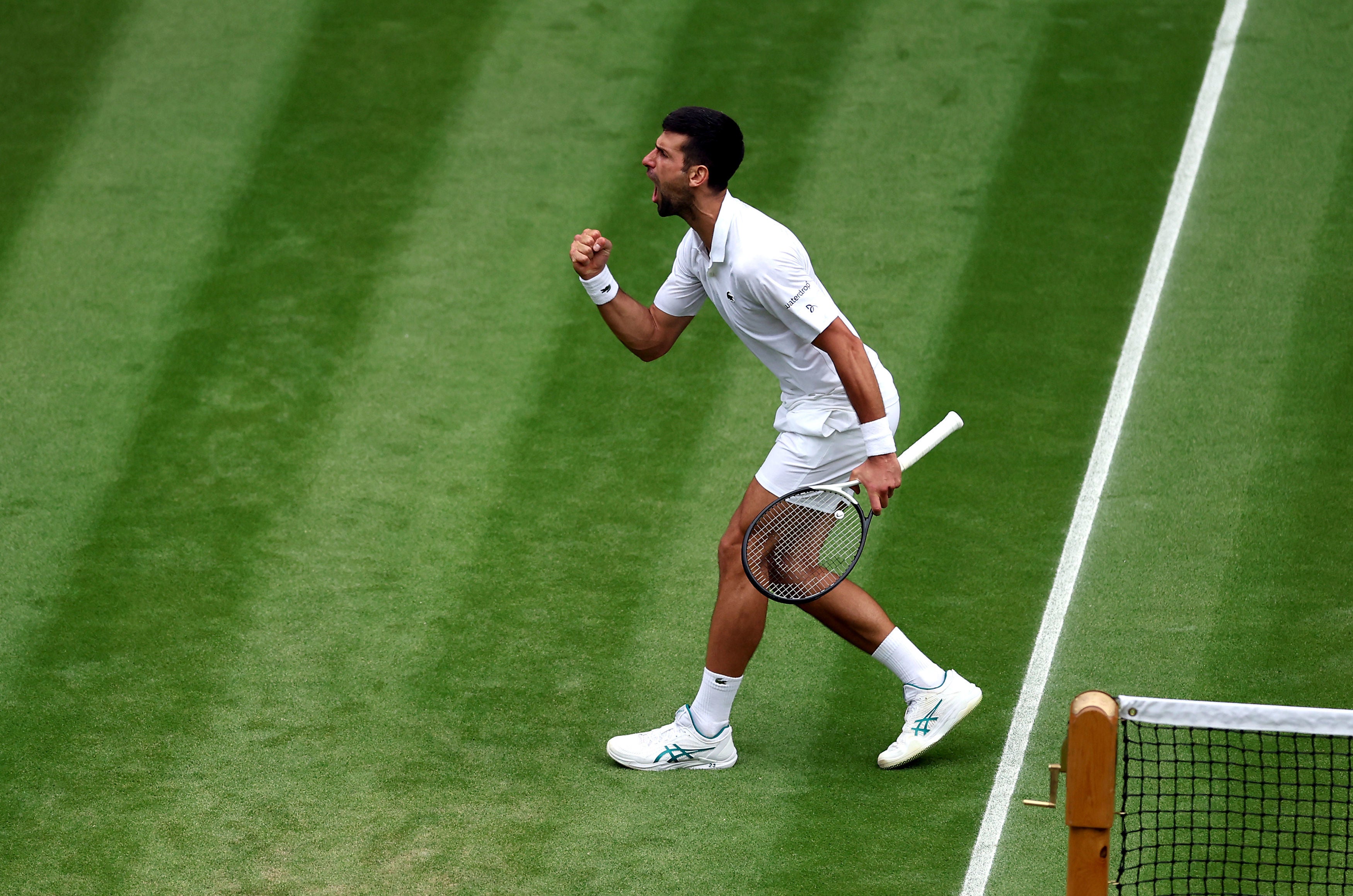Novak Djokovic, Andrey Rublev, and the moment a match became Wimbledon theatre
The seven-time champion fought from behind to win in four sets and reach the semi-finals

Your support helps us to tell the story
From reproductive rights to climate change to Big Tech, The Independent is on the ground when the story is developing. Whether it's investigating the financials of Elon Musk's pro-Trump PAC or producing our latest documentary, 'The A Word', which shines a light on the American women fighting for reproductive rights, we know how important it is to parse out the facts from the messaging.
At such a critical moment in US history, we need reporters on the ground. Your donation allows us to keep sending journalists to speak to both sides of the story.
The Independent is trusted by Americans across the entire political spectrum. And unlike many other quality news outlets, we choose not to lock Americans out of our reporting and analysis with paywalls. We believe quality journalism should be available to everyone, paid for by those who can afford it.
Your support makes all the difference.It is almost remarkable that every step Novak Djokovic takes on Centre Court does not emit a low thud – an ominous boom oscillating around the grounds of the All England Club, the SW19 postcode, and in fact the wider Wimbledon area. For such a sound would be a fitting soundtrack to the presence and progression of the seven-time champion at this tournament.
And while it would be irresponsible not to acknowledge the looming threats to Djokovic’s throne at Wimbledon this year, the reigning champion saw off another threat, another contender, another pretender to his crown on Tuesday, as the air of inevitability around the Serb intensified.
With this 4-6 6-1 6-4 6-3 victory over seventh seed Andrey Rublev, Djokovic’s 33rd straight win at Wimbledon, he set up a semi-final clash with eighth seed Jannik Sinner, and for all the youthful exuberance and precocious skill that the 21-year-old possesses, it is difficult not to see the Italian falling the same way as Rublev. Any one of Holger Rune, Daniil Medvedev, underdog Christopher Eubanks or world No 1 Carlos Alcaraz may then await, but their attributes risk disappearing under an asterisk – one stamped in the record books, above the section on Djokovic’s prospective 24th major title.
Rublev, the 25-year-old Russian who is yet to break the last-eight barrier at a slam, was one such athlete-turned-asterisk on Tuesday night. That barrier was embodied by a rampant Djokovic at the Australian Open in January, and the same was the case in London on this grey evening.
The Russian started well – as well as he could have. The ball cooperated kindly with his forehand, which he used to manoeuvre his opponent around the turf impressively, and his serve earned him some easy points – a rarity against Djokovic. Those assets aided Rublev on course to a 6-4 success in the first set, a scoreline that sent whispers flitting through the stands. Would this be the first act in a play about a king thrust from his throne? The genre is an old favourite, but this match would not turn into theatre just yet – that would come later.

Across the net from Rublev, Djokovic appeared as if on autopilot at times, for better and worse. The smooth swivel of his hips could not quite keep his forehand consistent, but his backhand was the trusty tool that it has been for years. Just when it seemed that Rublev might have Djokovic cornered in one moment, the Serb stretched into a backhand that turned defence into offence and reshaped the point in his vision. In another notable scene, Rublev thought he had Djokovic beaten with an alluring, arching forehand pass, only for the champion to stoop and drop a perfect volley over the net.
Soon thereafter, Rublev was undone by the gentlest of half-volleys, which brought a committed squad of Djokovic supporters to their feet in the third row. Before long, they were joined by the majority of the Centre Court crowd, which rose to applaud a demonstration of some of the finest defensive tennis imaginable; Rublev eventually fired long after seeing shot after shot after shot bounce back, failing to penetrate a wall made of Belgrade brick.
But Rublev also exhibited resilience, saving three break points to hold serve and going on to beat Djokovic at his own game, outlasting the 36-year-old on numerous points and earning the opportunity to claim the first set.
It was an opportunity that Rublev seized, but which brought out the stubborn side of Djokovic. The champion produced a hold to love to start the second set, before displaying more defensive acumen to demonstrate that he would not – will not – give up his title lying down. In fact, he would leave Rublev lying sprawled on the lawn moments later, breaking the 25-year-old’s serve with a delicate drop shot.

Rublev, who had worked so hard to put a dent in Djokovic’s armour in the first set, was suddenly on the floor, looking up at the Serb’s sword of a racket, which had carved out a 5-0 scoreline. It soon became 6-1, and the match was level.
In the third set, Rublev had back-to-back break points for a 2-0 lead, but he was denied by a Djokovic who was dialed in, deft, defensively absurd, and making the right decisions. Those factors carried the 36-year-old through the set, which he claimed 6-4, but if only the narrative were that simple, as it seemed it would be for 95 per cent of its run time.
It was in that final five per cent that this sporting contest finally transformed into the theatrical episode that it had earlier threatened to become. A marathon game at 5-4 saw Rublev win the rally of the day, sending the stands into raptures, as the tidal ebb and flow of the drama risked flooding into the stands and dragging fans onto the turf. Djokovic and Rublev took turns appealing to their audience, adding a pantomime palette to proceedings.

In the next set, the drama briefly morphed into a comedy as fans laughed along to a particular point, in which the players traded so many serrated slices that they might have mown the lawn. Rublev would fail to see the funny side, though, as the set slipped away. The match, and a place in the semi-finals of Wimbledon, went with it. On the final point, Djokovic again left the young pretender undone on the grass.
Despite those flickers of brilliance, the champion was undoubtedly not at his best here. The issue for his opponents is that, even then, Djokovic is still the most dangerous and daunting player in any draw. And his best may yet be holstered, ready to be withdrawn in the final act of this play. It was famously written that all the world’s a stage, and that one man in his time plays many parts. On this particular stage, however, Djokovic usually plays the part of king. He is not kind to the understudies.



Join our commenting forum
Join thought-provoking conversations, follow other Independent readers and see their replies
Comments